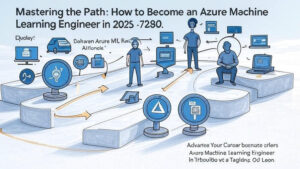In an age where education is no longer confined to the pages of textbooks, interactive educational workshops are emerging as transformative tools in empowering students to take charge of their own learning journey. These workshops break the monotony of traditional classroom teaching by incorporating hands-on experiences, collaborative tasks, and dynamic discussions. The goal isn’t just to relay information but to ensure it resonates with the learners. When students are engaged through activities that connect theoretical concepts to real-life applications, their critical thinking, creativity, and enthusiasm flourish. This interactive format not only helps students absorb knowledge more effectively but also builds confidence and communication skills—traits that are invaluable for lifelong learning and success.
Why Interactive Workshops Matter for Student Growth
The effectiveness of interactive workshops lies in their ability to nurture holistic development. Rather than passive listening, students are actively involved in the process of discovery and problem-solving. These sessions are designed to be student-centered, where facilitators act more as guides than instructors. This shift in dynamic is crucial in empowering students because it allows them to voice opinions, make decisions, and learn from both success and failure in a safe environment.
Moreover, interactive workshops encourage peer learning. Group activities, discussions, and collaborative problem-solving tasks help build a sense of community among learners. Students from diverse backgrounds bring different perspectives, fostering empathy and cultural awareness. These elements are often missing in traditional classrooms but are essential in preparing students for real-world challenges. The workshops also offer an ideal setting for personalized learning, where students can move at their own pace and receive individual attention—further strengthening their academic foundation.
Bridging the Gap with Learning Seminars
While interactive educational workshops offer immense benefits, they become even more impactful when aligned with local initiatives. One standout example of this is the ongoing effort to support learning seminars in Georgia. These seminars integrate local educational goals with hands-on, interactive experiences to ensure students receive relevant, practical learning. By anchoring workshops in regional needs, educators can tailor content that resonates deeply with students’ lived experiences and aspirations.
Local communities and schools in Georgia have found success in hosting seminars that combine career exploration, STEM learning, and life skills training, all within a collaborative environment. This localized approach does more than just deliver content—it creates meaningful connections between students and their communities, enhancing motivation and a sense of purpose. These seminars often serve as the first step in long-term educational and professional success, proving that geographic relevance can be a game-changer in empowering students.
Cultivating Leadership and Responsibility
Interactive workshops do more than build academic knowledge; they shape leaders. When students participate in decision-making tasks, lead group activities, or present their ideas, they begin to develop essential leadership qualities. Self-confidence, time management, empathy, and accountability are often cultivated naturally within this format. These attributes are crucial for young people as they transition from school to higher education or the workforce.
Empowering students through such initiatives allows them to recognize their own strengths and weaknesses. Reflective sessions often follow interactive activities, helping learners evaluate their performance and areas for improvement. When students take ownership of their learning process, they become more self-directed, which significantly boosts their long-term academic and professional outcomes. The ability to lead and be accountable becomes second nature—an invaluable asset in any career or life path.
Enhancing Critical Thinking and Problem Solving
One of the biggest advantages of interactive workshops is their focus on real-world problem-solving. Students are challenged with scenarios that require analytical thinking, creative solutions, and collaborative efforts. These tasks are not just theoretical but reflect actual issues that they might encounter in professional or social settings. This immersive environment allows students to apply academic knowledge in practical ways, thereby deepening their understanding.
Empowering students in this way ensures they’re not just memorizing facts but learning how to think critically and adapt to changing circumstances. Such competencies are vital in a world where adaptability and innovation are key to success. Workshops that focus on critical thinking also improve cognitive flexibility, a trait linked with higher academic performance and job readiness. These are not skills that can be taught through rote learning—they must be experienced, challenged, and refined through active participation.
Inclusive Learning for Diverse Student Needs
Another significant advantage of interactive educational workshops is their adaptability for diverse learners. Students come with varied learning styles, interests, and challenges. Traditional classrooms often struggle to accommodate this diversity, but workshops are inherently flexible and inclusive. Activities can be modified in real-time, support tools can be introduced, and facilitators can personalize instruction to suit the group’s needs.
For students with learning differences or those who feel disconnected from standard curriculum formats, this approach can be transformative. Empowering students by validating their unique learning paths fosters a sense of belonging and motivation. Interactive methods are particularly effective for kinesthetic and visual learners, who often struggle in lecture-based environments. With this inclusive model, every student finds a way to shine, to contribute, and to grow.
Role of Educators and Facilitators
Behind every successful workshop are dedicated facilitators who understand the importance of student engagement. Teachers, mentors, and educational leaders play a crucial role in designing and delivering these sessions. They must balance the need for structure with the flexibility required for genuine interaction. It takes skill to guide students without dominating the conversation and to create a safe space where every voice is heard.
Professional development for educators is essential to support this approach. Training in workshop design, facilitation techniques, and student psychology equips them to better fulfill their role in empowering students. Additionally, when facilitators are passionate and approachable, students respond with enthusiasm and commitment. The emotional tone set by the educator can often determine the success of a session.
Long-Term Impact and Lifelong Learning
Perhaps the most compelling reason to invest in interactive educational workshops is their long-term impact. Students who are actively engaged in learning are more likely to develop a love for knowledge that persists beyond school. They become self-motivated learners, critical thinkers, and proactive citizens. This is the true essence of empowering students—instilling in them the desire and ability to keep learning and growing throughout life.
The skills acquired during these sessions extend well beyond the classroom. From effective communication to team collaboration, and from problem-solving to leadership, the outcomes are both measurable and profound. Communities that invest in such educational models often see increased graduation rates, better student behavior, and higher overall achievement.
Conclusion
In today’s fast-paced and complex world, the need for educational models that go beyond passive learning has never been more urgent. Interactive workshops provide an effective, engaging, and inclusive platform for empowering students to become active participants in their own education. From nurturing leadership and critical thinking to building community connections through initiatives like support learning seminars, the benefits are vast and far-reaching.
By embracing this model, educators and communities are investing not only in academic success but in the development of future leaders, innovators, and compassionate citizens. The time to shift from traditional paradigms to more dynamic, student-focused learning experiences is now. Because when students are empowered, they don’t just perform better—they thrive.








